
El Malecon is a popular meeting place in the evening
With an early flight the next day there wasn’t really time to hit the nightlife of Havana, so instead we opted for a walk along El Malecón, Havana’s sea defences.
El Malecón is a waterside pedestrian area that lines the seafront in Havana. The four-mile long walkway starts at the Castillo de San Salvador de la Punta, which can be seen towering over the bay.
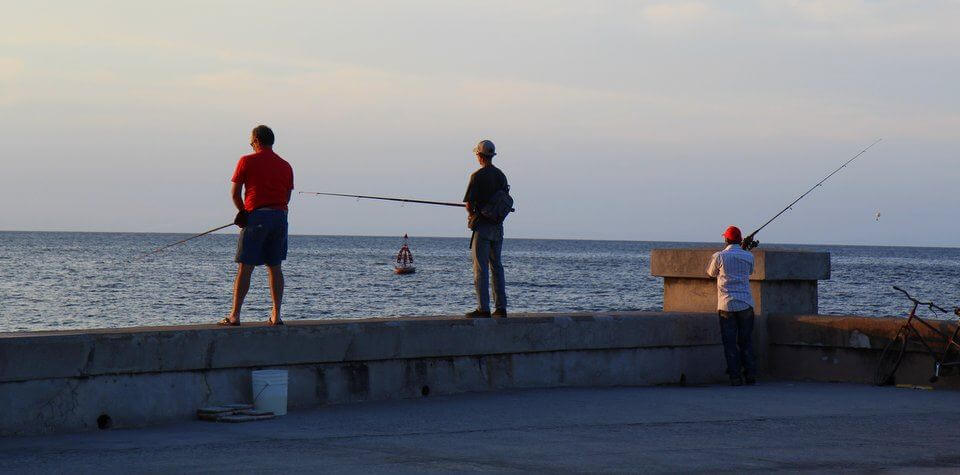
Fishing from El Malecon
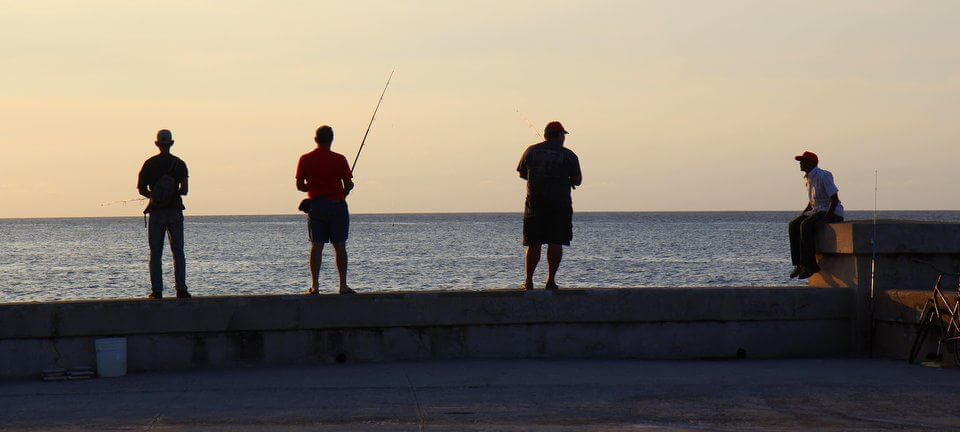
We didn’t see anyone catch anything, all the time we were there – I think it’s more about hanging out with friends
As attractions go it’s free to visit and could provide hours of entertainment and people watching. Groups of friends hang around the parks and wider areas become football pitches and baseball courts. In the evening the sea walls are lined with fishermen and couples, both looking out towards the setting sun.
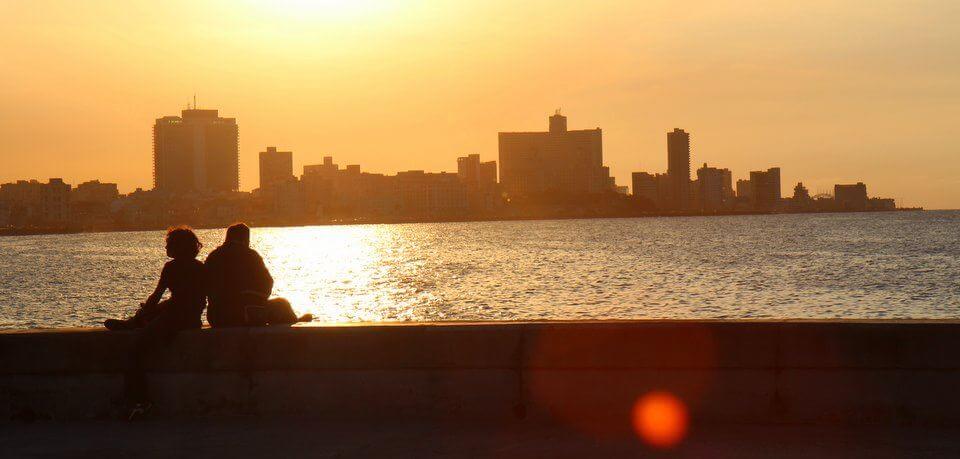
Sunset over Havana
Between the sea front and the buildings of Old Havana there are more parks, with far more organised games of football going on – most of the teams have shoes in this area.
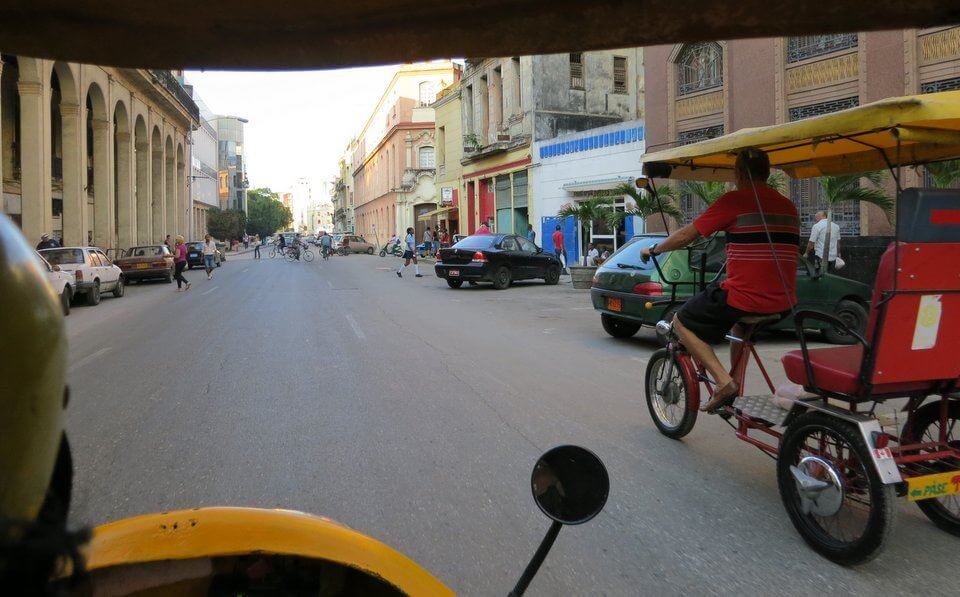
Taxi a Coco taxi to the seafront
Getting to El Malecon
It’s only a short walk to and from town, or one of the round Coco cabs is very cheap. Supposedly there are horses and carts on offer to shuttle tourists around, but we didn’t see any either of the times we were in Havana.
By nightfall it became too dark to play baseball, and the music and dancing had started. People came out of their houses and joined the sports players in dancing, chatting and smiling.
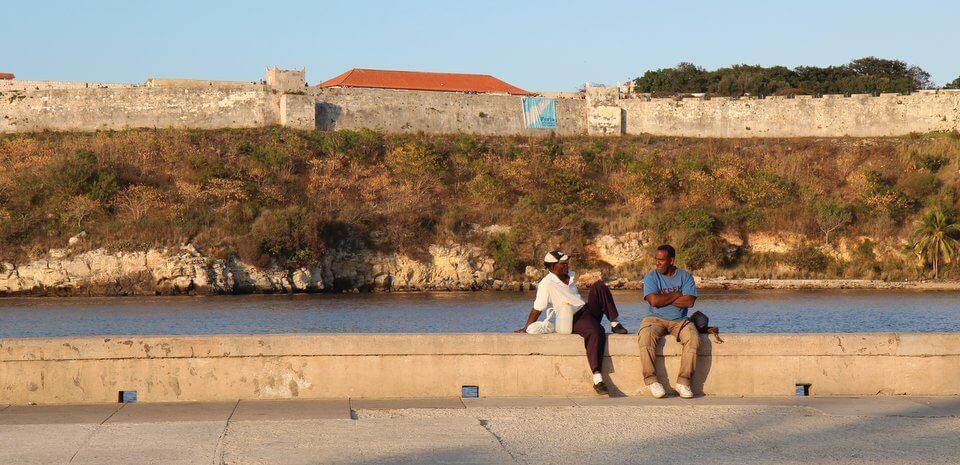
Men chatting on El Malecon
I have a theory, born from watching TV in China and seeing the crowds outside preferring to dance, that having a terrible TV service makes a country far more outdoorsy and social. In the UK (and many other developed countries) we have endless choice of what to watch and it’s far too easy to end up sat indoors, away from the world.
Bill Watterson, the author of Calvin and Hobbes said it better:
“Our idea of relaxing is all too often to plop down in front of the television set and let its pandering idiocy liquefy our brains. Shutting off the thought process is not rejuvenating; the mind is like a car battery – it recharges by running.
You may be surprised to find how quickly daily routine and the demands of “just getting by” absorb your waking hours. You may be surprised matters of habit rather than thought and inquiry. You may be surprised to find how quickly you start to see your life in terms of other people’s expectations rather than issues. You may be surprised to find out how quickly reading a good book sounds like a luxury.”

Looking toward the Castillo de San Salvador de la Punta, opposite El Malecon
